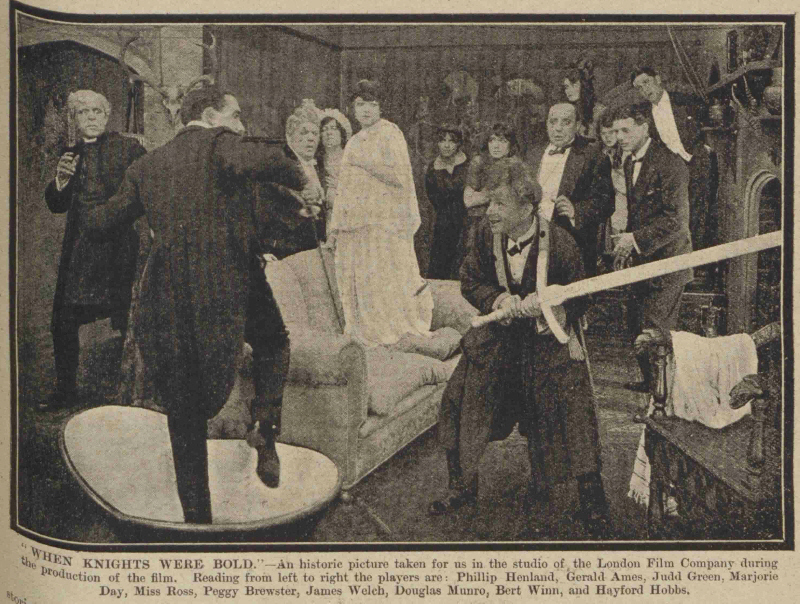|
And there’s additional material about the 1929 and 1936 versions. All available in the When Knights Were Bold Film section. Also, staying with When Knights Were Bold, which seems to be the gift which keeps on giving, I came across some photos of the members of the cast of the 1908 Swedish version. The nearest thing I could find to a review of the Swedish production (which was called Bland bålde riddersmän - ‘Among the Bold Knights’), is this mention of the touring production from The Great Theatre in Gothenburg 1893 - 1929: A Few Pages From Its History by Axel Fromell,
“Ranft had two tours here. One with Peter Fjelstrup as a guest, played the Danish play ‘A City Home’ that had been performed here before, while the other from the Vasateatern gave ‘Bland bålde riddersmän’ with Olof Winnerstrand as Sir Guy de Vere and Miss Josette — my wife, where Frida Winnerstrand "radiated".
‘Among the Bold Knights’ had been a long-lasting and great success at the Vasateatern in Stockholm, before it came here on tour. For months the play had been running there, and people had almost laughed themselves to death at Winnerstrand's Sir Guy de Vere. All of Stockholm spoke of him with delight, he was constantly imitated, and wherever you turned you heard one of his hilarious lines. Thanks to his portrayal of the main role, the funny English farce had remained in the repertoire for over 100 evenings. On the 100th occasion Winnerstrand was interviewed, during which he denied a rumor that he had lost ten kilos in weight due to his strenuous role and thereby broken Victor Lundberg's record.”
Before we leave the Picturegoer, three more items. God and the Man is treated to an
‘Ideal photo-play version of Robert Buchanan’s famous novel.
The story adapted for “Pictures” by IVAN PATRICK GORE.’
While ‘The Lament of Langhorne’ shines a spotlight on the star of A Man’s Shadow, Langhorne Burton.
And there are always those incidental (non-Buchanan related) delights like this. Who knew the actors in Silent Movies occasionally swore?!
|


